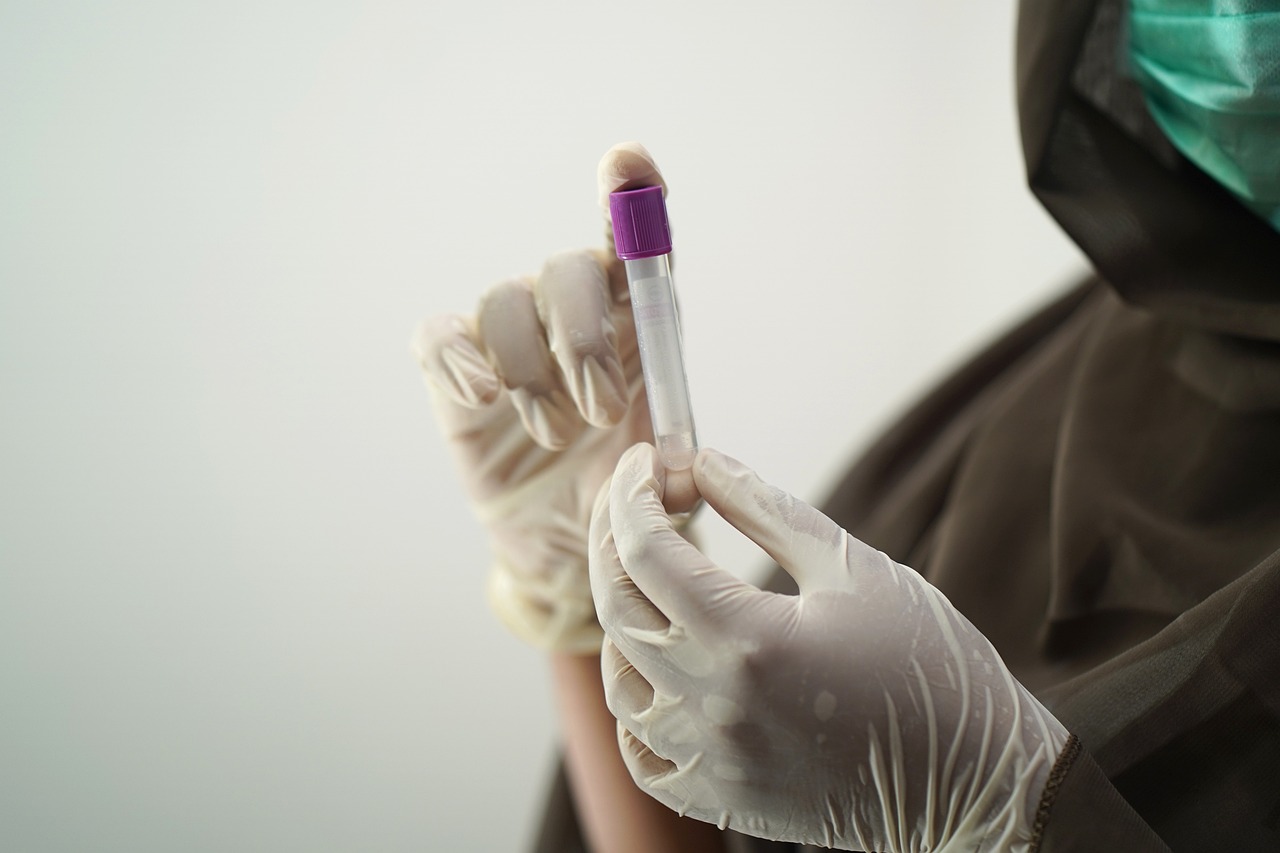Understanding the timing of pregnancy tests is crucial for accurate results. When it comes to determining how long after sex you can take a pregnancy test, various factors come into play. Let’s delve into the details to ensure you have a clear understanding of when and how to proceed.
After unprotected sex or when trying to conceive, the timing for taking a pregnancy test is essential. For urine pregnancy tests, it is generally recommended to wait at least one week after a missed period for the most reliable results. However, some early detection tests claim to provide accurate results even before a missed period. These tests can detect pregnancy hormones sooner, but their reliability may vary.
On the other hand, blood pregnancy tests offer advantages over urine tests in terms of early detection. They can detect pregnancy hormones earlier, providing a more precise result. For quantitative blood tests, the levels of hCG (human chorionic gonadotropin) can be measured, giving a more detailed insight into the pregnancy status. Qualitative blood tests, on the other hand, simply confirm the presence of hCG without measuring the exact levels.
Considering the sensitivity levels and accuracy of different tests, it’s crucial to choose the right type of pregnancy test based on your specific situation. Whether you opt for a urine test or a blood test, following the recommended timing guidelines will help ensure reliable outcomes and minimize any uncertainties.

Types of Pregnancy Tests
When it comes to pregnancy tests, there are two main types: urine tests and blood tests. Each type has its own set of advantages and considerations to keep in mind when determining which test to take. Let’s explore the key differences between these two types of pregnancy tests:
- Urine Pregnancy Tests: These tests are commonly used and are easily accessible at pharmacies or can be done at home. They work by detecting the presence of the hormone hCG in the urine, which is produced during pregnancy. Urine tests are convenient, affordable, and can provide quick results within minutes.
- Blood Pregnancy Tests: Blood tests are typically more sensitive than urine tests and can detect lower levels of hCG earlier in pregnancy. They are often performed at a doctor’s office or clinic. Blood tests can provide quantitative results, measuring the exact amount of hCG in the blood, or qualitative results, simply confirming the presence of hCG.
Choosing between a urine test and a blood test depends on various factors such as how early you want to detect pregnancy, the accuracy level required, and your personal preference. While urine tests are convenient and cost-effective, blood tests offer higher sensitivity and can provide more detailed information about the pregnancy.

Timing for Urine Pregnancy Tests
When it comes to urine pregnancy tests, timing is key to obtaining accurate results. These tests work by detecting the presence of the hormone hCG in your urine, which is produced during pregnancy. To ensure the reliability of the results, it is essential to understand the recommended timing for taking a urine pregnancy test after unprotected sex or when trying to conceive.
Here are some important points to consider regarding the timing for urine pregnancy tests:
- Wait at least one week after a missed period: Taking the test too early can result in a false negative, as the levels of hCG may not be detectable yet.
- First-morning urine is ideal: The concentration of hCG is typically highest in the morning, making it the best time to take the test for accurate results.
- Avoid excessive fluid intake before the test: Diluted urine can affect the accuracy of the test, so it’s recommended to limit your fluid intake before testing.
- Follow the instructions carefully: Each pregnancy test kit comes with specific instructions on when and how to use it. Make sure to read and follow them closely for the most reliable results.
By understanding the timing guidelines for urine pregnancy tests and following them diligently, you can increase the likelihood of obtaining accurate results and gaining valuable insights into your pregnancy status. Remember, patience is key when it comes to waiting for the right time to take the test to ensure its effectiveness.

Early Detection Tests
When it comes to early detection tests for pregnancy, there are various options available claiming to provide accurate results even before a missed period. These tests are designed to detect low levels of the pregnancy hormone hCG in urine, offering a glimpse into potential pregnancy at an early stage. However, it’s important to note that the reliability of these tests can be influenced by factors such as the sensitivity of the test and the timing of when it is taken.
Here are some key points to consider when it comes to early detection pregnancy tests:
- Sensitivity Levels: Early detection tests are known for their high sensitivity in detecting hCG levels, sometimes as early as 6-8 days after ovulation. This can be beneficial for those eager to find out if they are pregnant soon after conception.
- Timing Matters: Despite claims of early detection, taking the test too soon can result in false negatives due to low hormone levels. It’s advisable to wait until closer to the expected period date for more reliable results.
- Accuracy Concerns: While early detection tests offer the possibility of knowing sooner, there is a trade-off with accuracy. Factors like dilution of urine or improper testing procedures can impact the reliability of the results.
Ultimately, early detection tests can provide a glimpse into pregnancy at an earlier stage, but it’s essential to balance the excitement of potential early results with the need for accuracy. Understanding the limitations and considerations associated with these tests can help individuals make informed decisions about when to take them for the best possible outcomes.

Timing for Blood Pregnancy Tests
When it comes to blood pregnancy tests, timing is crucial for accurate results. Unlike urine tests, blood tests can detect pregnancy hormones much earlier, providing a more definitive answer. These tests are often recommended for women who are trying to conceive or suspect they may be pregnant.
Timing-wise, blood pregnancy tests can typically detect pregnancy hormones about 7-12 days after conception. This makes them a more sensitive option compared to urine tests, which may require waiting until after a missed period for reliable results.
Quantitative blood tests measure the exact amount of hCG (human chorionic gonadotropin) in the blood, offering a precise indication of pregnancy and even the progression of pregnancy. On the other hand, qualitative blood tests simply confirm the presence of hCG without specifying the levels.
It’s important to note that blood pregnancy tests are usually conducted at a healthcare provider’s office or a lab, as they require a blood sample. The results are typically available within a few hours to a day, depending on the facility’s processing times.
Overall, if you are looking for early and accurate confirmation of pregnancy, a blood test is a reliable option. The ability to detect pregnancy hormones sooner than urine tests can provide peace of mind and allow for timely decision-making regarding prenatal care and planning.

Quantitative vs. Qualitative Blood Tests
When it comes to blood pregnancy tests, there are two main types: quantitative and qualitative tests. These tests serve different purposes and provide varying levels of information regarding pregnancy. Let’s delve into the differences between quantitative and qualitative blood tests to understand their significance in determining pregnancy.
Quantitative Blood Tests:
- Quantitative blood tests measure the exact amount of hCG (human chorionic gonadotropin) hormone in the blood.
- These tests provide a specific numerical value, indicating the concentration of hCG present in the bloodstream.
- Quantitative tests are highly sensitive and can detect even small amounts of hCG, making them ideal for tracking the progression of pregnancy or identifying potential issues.
- Doctors often use quantitative blood tests to monitor hCG levels during early pregnancy or in cases where a more precise measurement is required.
Qualitative Blood Tests:
- Qualitative blood tests, on the other hand, simply confirm the presence or absence of hCG in the blood.
- These tests do not provide specific hCG levels but rather give a yes or no answer regarding pregnancy.
- Qualitative tests are commonly used as initial screening tests to determine pregnancy status.
- They are less sensitive than quantitative tests but are still reliable in confirming pregnancy.
Overall, the choice between quantitative and qualitative blood tests depends on the specific information needed and the stage of pregnancy. While quantitative tests offer precise hCG measurements, qualitative tests provide a straightforward confirmation of pregnancy status. Both types of blood tests play a crucial role in diagnosing pregnancy and monitoring its progress effectively.
Frequently Asked Questions
- When is the best time to take a pregnancy test after unprotected sex?
The ideal time to take a pregnancy test after unprotected sex is about a week after your missed period. Testing too early can result in false negatives due to low levels of pregnancy hormones.
- Can a pregnancy test give a false positive result?
While rare, false positive results can occur due to certain medications, medical conditions, or an expired test. It’s always recommended to confirm positive results with a healthcare provider.
- Do different brands of pregnancy tests vary in accuracy?
Most pregnancy tests are highly accurate when used correctly. However, some brands may have different sensitivity levels, with some detecting lower levels of pregnancy hormones earlier than others.
- Is it possible to get a false negative result on a pregnancy test?
Yes, false negatives can happen if the test is taken too early or not done correctly. It’s advisable to repeat the test or consult a healthcare provider if you suspect you may be pregnant despite a negative result.